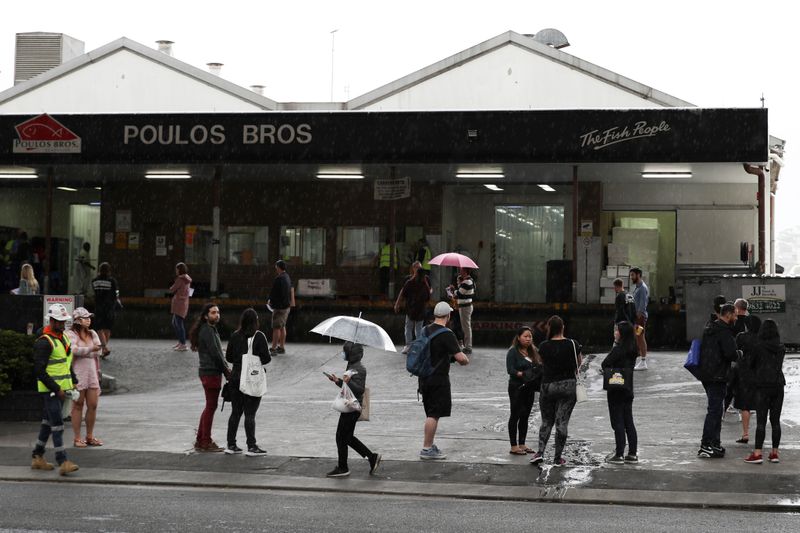SYDNEY (Reuters) – Australia’s remote Northern Territory will lift all social distancing restrictions by June as it has recorded no cases of coronavirus for three weeks — the first state or territory in Australia to detail how it plans to restart its local economy.
Restrictions will be lifted in three phases, Chief Minister Michael Gunner said on Thursday.
Social gathering limitations for non-contact sport, weddings and funerals will be lifted on Friday. Restrictions on restaurants and pubs will be eased in mid-May and all remaining restrictions removed on June 5.
“May 15 date night, June 5 Sunday sesh (pub session),” Gunner told reporters in Darwin, capital of the territory, which has a reputation for heavy drinking and the highest alcohol consumption per person in Australia.
Gunner said the Northern Territory was easing restrictions after recording no new cases of coronavirus for three weeks.
“Being the safest in the nation means being the first in the nation to get back on track,” Gunner said earlier in a speech announcing the easings of restrictions.
“Back to business, back to work, back to enjoying the great Territory lifestyle.”
The sparsely populated outback Northern Territory has recorded only 28 cases of coronavirus, with all but three now recovered.
Australia has imposed strict social distancing restrictions since April that have slowed the rate of new infections to around 1% a day, compared to 25% a month ago.
Several states have begun easing restrictions, though they have not detailed a timetable when all curbs will be lifted.
FISHING, SHOOTING AND WEDDINGS
From Friday, locals in the Northern Territory will be permitted to begin non-contact outdoor sports as long as they can keep 1.5 metres (5 feet) apart. Outdoor weddings and funerals, which have been curtailed to no more than 10 guests, will also be free from limits, Gunner said.
Gunner said from May 15, restaurants and cafes will be allowed to reopen, though the number of customers will be limited and no patron can remain for more than two hours.
Any pub that reopens on May 15 must serve food, Gunner said.
Finally, all restrictions will be removed on June 5, which will also allow cinemas and nightclubs to reopen.
The decision of the Northern Territory will add pressure on other Australian states to follow suit.
In Australia’s most populous state New South Wales (NSW), which has almost half the national coronavirus cases, some social gathering restrictions will ease on Friday, while beaches like Sydney’s famous Bondi, have been reopened.
With NSW reporting just two new coronavirus cases on Thursday, NSW Premier Gladys Berejiklian is under growing pressure to accelerate the easing of curbs.
But she has urged locals to remain patient, highlighting an outbreak in an aged care facility in the west of Sydney where 12 people have died.
CORONAVIRUS CLUSTERS
Australia has reported about 6,700 cases of coronavirus and 91 deaths, significantly below the number of infections and deaths reported in the United States, Britain and Europe.
The national government attributes its success in fighting coronavirus to the closure of external and internal borders, strict social distancing restrictions and widespread testing.
Nearly all of Australia’s coronavirus fatalities have come in clusters.
A coronavirus cluster in the island state of Tasmania, which has killed 10 people, is likely to have originated from the Ruby Princess cruise ship, state premier Peter Gutwein told reporters on Thursday.
The Ruby Princess, owned by a unit of Carnival Corp, the world’s largest cruise operator, is Australia’s largest source of coronavirus infections.
Some 2,700 passengers were allowed to leave the ship when it docked in Sydney on March 19, despite several passengers showing symptoms of COVID-19.
Hundreds of passengers subsequently tested positive for the disease after disembarking and travelling home across the country, spreading the virus.
(Reporting by Colin Packham; Editing by Lincoln Feast and Michael Perry)

























